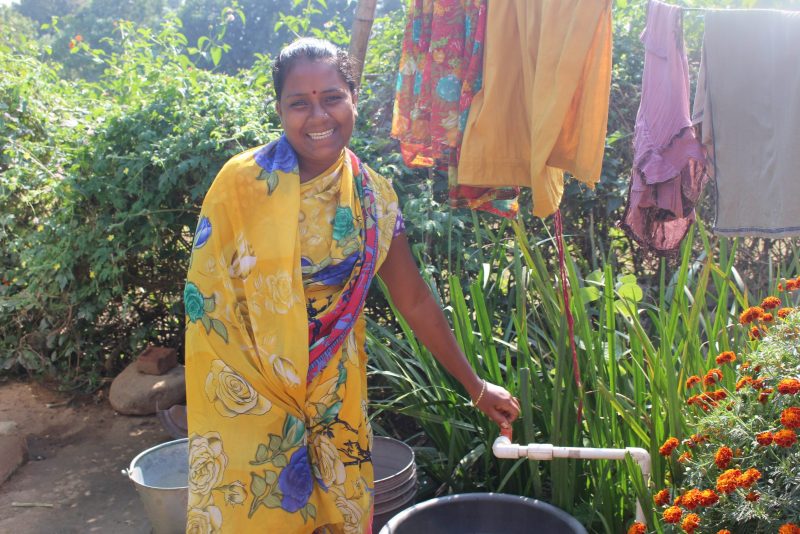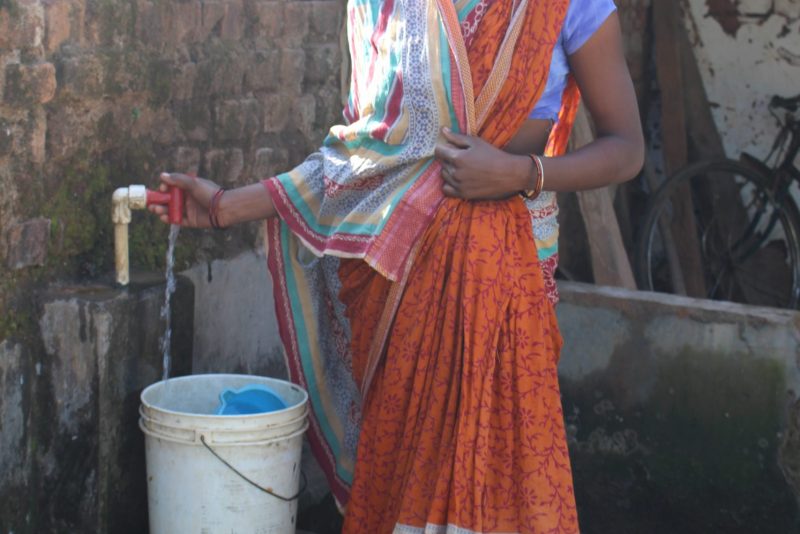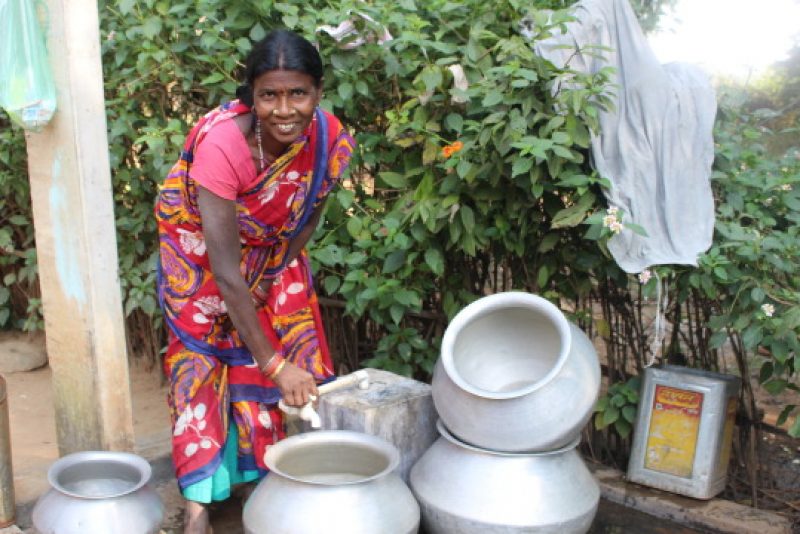‘Clean Water’ – a podcast episode on what makes us human
The latest episode of the “What Makes Us Human?” podcast series, explains the impact of clean, piped-in water on women and girls in India. A recording and transcript of the podcast is available.
This story originally appeared in the Cornell Chronicle.

Photo credit: Shiuli Vanaja
“Clean Water,” a new episode of the “What Makes Us Human?” podcast series, explains the impact of clean, piped-in water on women and girls in India.
The podcast’s fourth season – “What Does Water Mean to Us Humans?” – showcases the newest thinking across academic disciplines about the relationship between humans and water.
“Imagine how much water you use a day, and then imagine having to carry every ounce of that to your home,” Prabhu Pingali, founding director of the Tata-Cornell Institute for Agriculture and Nutrition, said in the podcast.
Pingali is a professor of applied economics and policy in the Dyson School of Applied Economics and Management, and of nutritional science in the College of Agriculture and Life Sciences. His research focuses on international and development economics and policy, as well as food policy.
“The time spent carrying water,” Pingali said, “is time not spent on other important activities, like farming, generating income, attending school or caring for children and the elderly.”
The “What Makes Us Human?” podcast, produced by the College of Arts and Sciences in collaboration with the Cornell Broadcast Studios, features audio essays written and recorded by Cornell faculty. New episodes are released each Tuesday through the spring semester, airing on WHCU and WVBR.
The episodes are also available for download on iTunes and SoundCloud and for streaming on the A&S humanities page, where text versions of the essays are also posted.
– Linda B. Glaser




